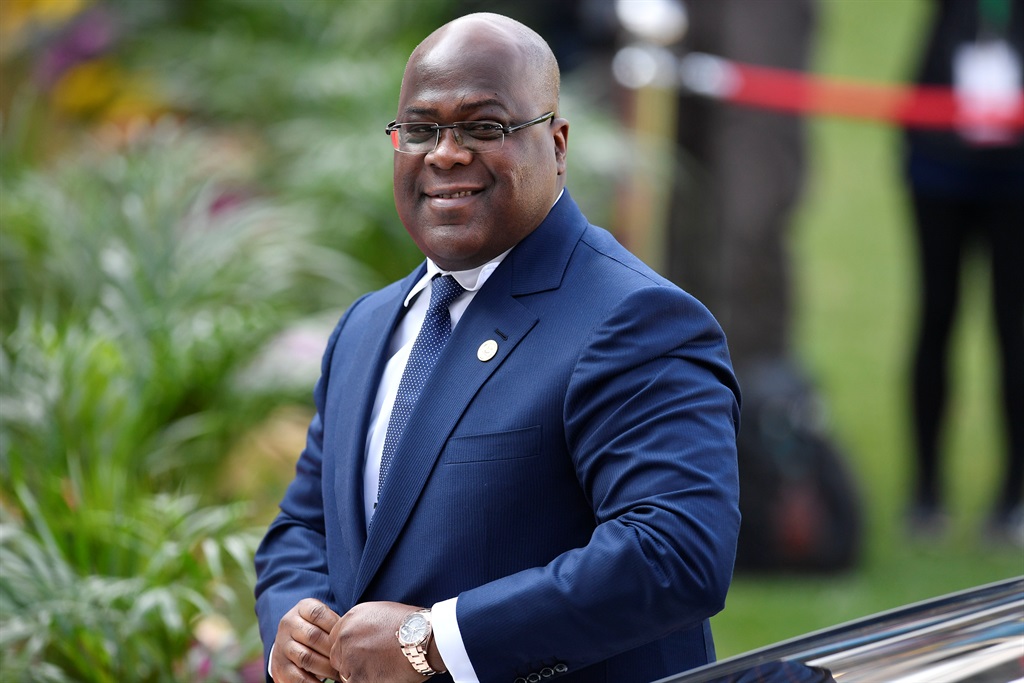

The International Monetary Fund (IMF) has disbursed R2.8 billion ($201 million) to the government of the Democratic Republic of the Congo (DRC) just under a week from the all-important general elections.
This could serve as a boost for incumbent President Felix Tshisekedi, who is seeking a second and last constitutional term.
The IMF said it was channeling the money because, “notwithstanding the challenging socio-political and security situation, the authorities remain committed to preserving programme objectives, including by limiting macroeconomic slippages and continuing to implement the economic reform agenda”.
The money was allocated at the IMF’s completion of its fifth review under the Extended Credit Facility arrangement with the DRC.
The funds are for Kinshasa to build its international reserves.
READ | DRC elections: SADC sends yet another Zambian VP to observe polls
In February this year, the Central Bank of Congo (BCC) announced gross international reserves stood at R87.4 billion ($4.6 billion).
The country’s biggest challenge is the insurgency in the east where the M23 and other small militias known as the Mai Mai make the country ungovernable.
With elections due on 20 December, there are concerns that people might fail to exercise their democratic rights to vote because of insecurity.
However, that didn’t stop the IMF from having faith in an economy that they say could be bailed out by “the extractive sector which remained dynamic despite negative terms of trade shocks”.
All candidates vying for the presidential spot in the upcoming polls, particularly the front-runners – Martin Fayulu, Moise Katumbi, Dr Denis Mukwege, and Delly Sesanga – are promising to tackle corruption if voted into power.
IMF managing director Kenji Okamura emphasised that for the DRC, largely viewed as one of the most resource-rich countries in the world, streamlining the fight against corruption and formalising the extractive sector were paramount.
He said:
Advancing reforms to improve governance and transparency, including in mining, strengthening the anti-corruption and Anti-Money Laundering and Combating the Financing of Terrorism ( AML/CFT) frameworks, enhancing the business environment, and building climate resilience, will be critical for supporting private sector development and for promoting diversified, sustainable, and inclusive growth.
DRC Finance Minister Nicolas Kazadi told journalists on Monday that Tshisekedi’s establishment had covered considerable ground in addressing the historical socio-economic challenges the country faced.
“The effort we are making is huge. We have done well in poverty reduction. At one point, 70% of the people were considered poor; now, around 62% of the population is considered poor,” he said.
“This is a big change. We cannot say nothing has been done to raise the living standards of our people.”
He conceded that more had to be done in areas such as access to clean water and energy.
Heading into the elections, Kazadi said it was important to have credible polls and a smooth transition of government.
“Economics starts with politics. We were able to have a peaceful transition when we came into power at the time when it was not given. You may know after Kabila’s (Joseph) time. We have been managing the transition, and that’s a good sign for the economy,” he said.
The News24 Africa Desk is supported by the Hanns Seidel Foundation. The stories produced through the Africa Desk and the opinions and statements that may be contained herein do not reflect those of the Hanns Seidel Foundation.
